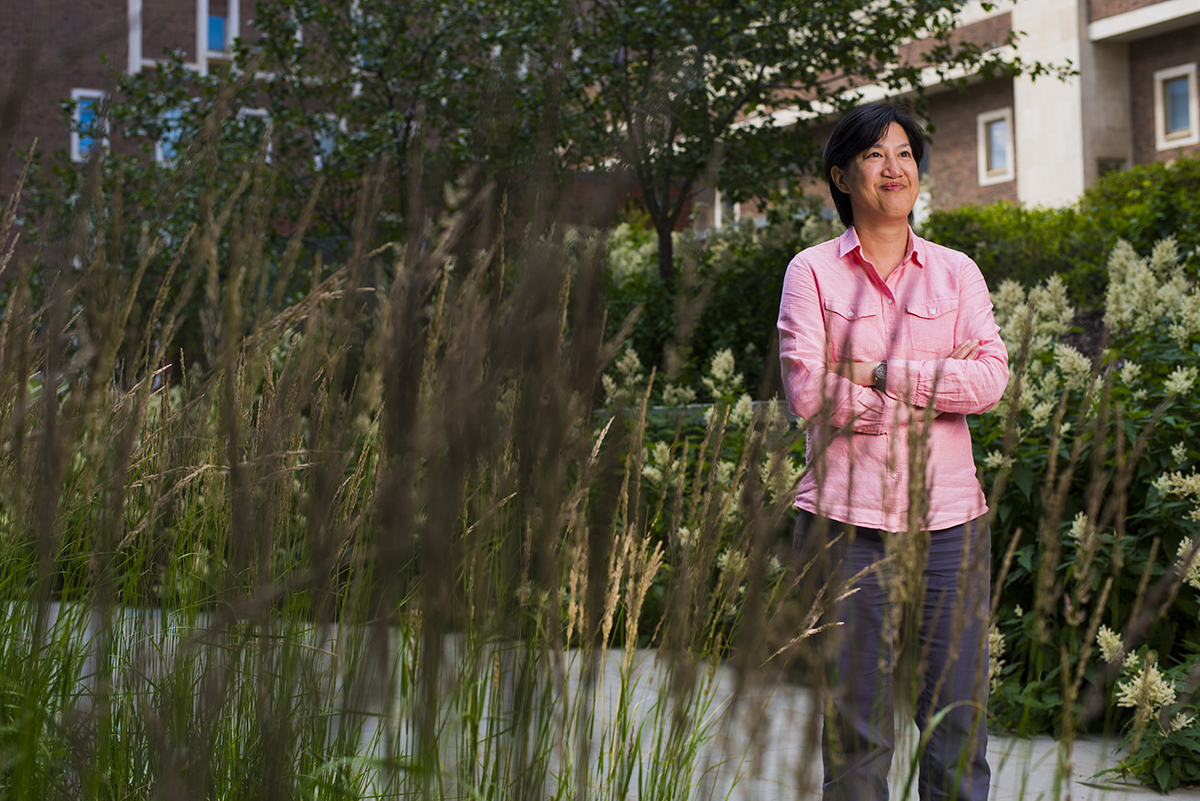
Instructor of the Month for September 2017 is Lien Luong, assistant professor in the Department of Biological Sciences.
What do you teach?
I teach BIOL 108: Introduction to Biological Diversity and BIOL 495: Special Topics - Ecology of Infectious Diseases.
Why should people learn about this area?
Biodiversity encompasses all life on earth from microscopic bacteria to giants like blue whales and sequoia tress. We can study biodiversity at all levels, from your backyard to the planet Earth. The fact that life on earth is so very diverse is in of itself really interesting. How did all this diversity arise? Why do some organisms look similar while others look so drastically different?
What are some of its "real-world" applications?
Biodiversity, not individual species, serves many ecosystem functions including provisioning of the water and air we breathe. Biodiversity also provides foods, materials, and medical derivatives essential for our health and economy. It also promotes genetic diversity, which is important for resistance to infectious diseases. Parasite and pathogens are ubiquitous. An understanding of the ecology and evolution of parasites is essential for the conservation of biodiversity and management of infectious diseases.
What's the coolest thing about this subject area?
The study of biodiversity is extremely accessible. You do not need to travel to the tropical rainforest to appreciate it. Just look in your backyard or the river valley. Life on earth takes on many shapes and sizes, putting on an amazing and spectacular display of functions and adaptations. It is truly the greatest show on earth!
What kinds of unique or innovative learning experiences do you offer your students? What's the value in offering students these opportunities?
Not all students learn the same way. I strive to incorporate a range of teaching and learning strategies, from flipped classrooms to in-class active learning. These strategies promote active learning, student engagement, and team spirit.
What was your favourite learning experience as an undergrad, and how do you incorporate that experience into teaching your students?
My favourite learning experience as an undergrad certainly did not involve passive lectures. Instead, I most enjoyed courses that offered experiential learning, either in the form of problem solving or some other form of investigative learning. The in-class activities provide students with the opportunity to synthesize and apply their knowledge in different situations.
What is one thing that people would be surprised to know about you?
I immigrated to the North America when I was 6 years old with my family from Saigon, Vietnam. So I did not learn to speak English until first grade! We were "boat people" or refugees that fled our homeland after the Vietnam War, a part of the massive Chinese/Vietnamese Diaspora. We lived in limbo in a refugee camp (the size of a football field) in Malaysia for 13 months before we found passage to the United States.